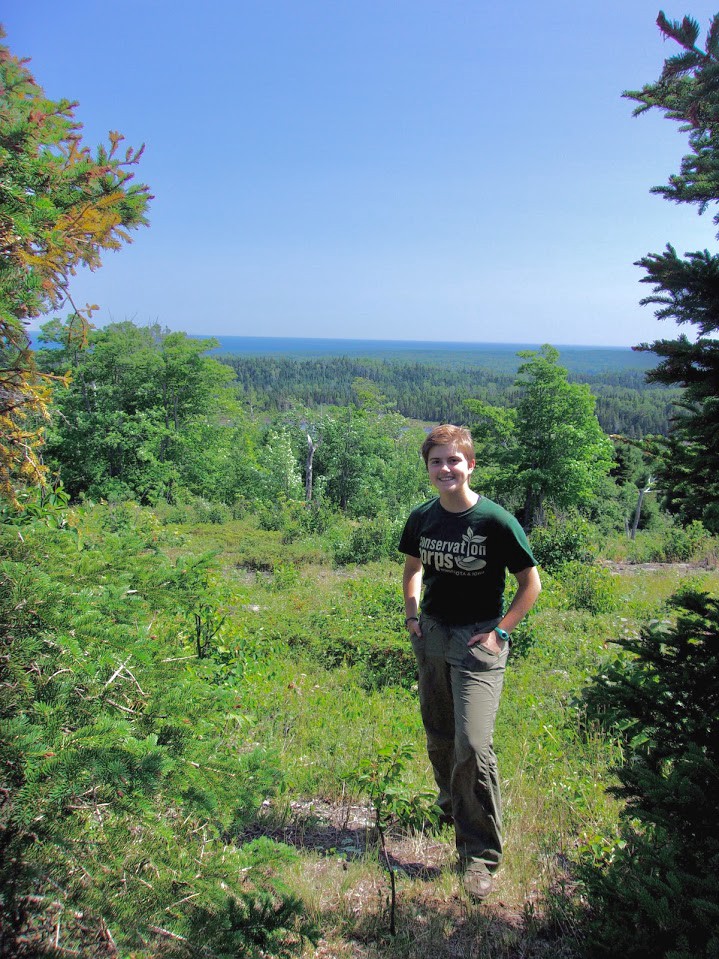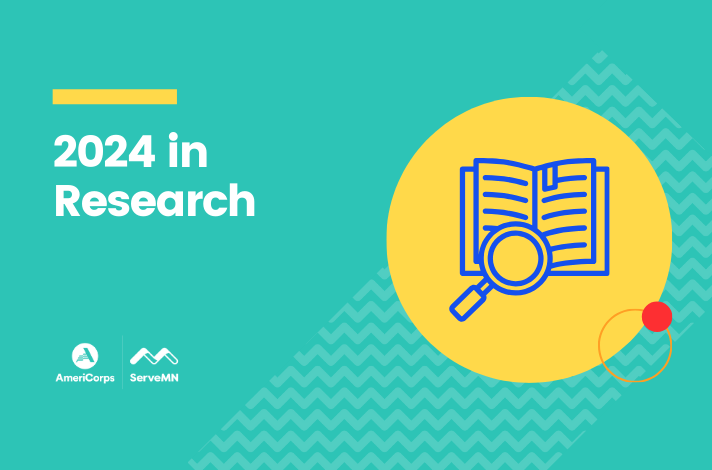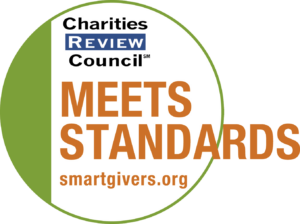Editor’s Note: This guest essay was written by Mia Werger, a Minnesota Conservation Corps alum, and published on Medium on Feb. 2, 2020.
Last week, I woke up to another barrage of online news proclaiming a climate apocalypse. It was too much — I wanted to roll over and go back to sleep. Not for the first time, I thought: I could give this all up. I could go back to worrying about grades and friendships and summer jobs, like a normal college student. In that moment, ignorance sounded so blissful.
But I really don’t have a choice anymore. Contemplating, researching, and protesting ecological destruction are part of my life. Although it sounds depressing, it’s not just about avoiding catastrophe. I’m also actively searching for something I know exists: community.
I didn’t grow up with a lot of community. I think most of us don’t. We might have a few friends and family members whom we trust, but we rarely feel true “belonging.”
I was 17 when I first encountered real community. That summer, I was hired by the Minnesota Conservation Corps. Our crew of eight people spent the summer sleeping in tents and doing trail work in the backcountry. On our first day, we packed into a 12-passenger van and left our cell phones, our showers, our whole lives, behind.
It was the best summer of my life.
I remember one day in particular. I was on water duty: I had to carry the pots down to the lake, fill them, and bring them back for purifying. It was a boring chore, yet somehow I appreciated that. While I was crouched at the edge of the lake, filling up pots, I realized I was content in a way I’d never been before.
That surprised me. Here I was, cold and wet much of the time, surrounded by the same seven people every day, doing manual labor — in my rational mind, I should have been sick of it all. Instead, I felt peaceful. I belonged here; I believed in the work I was doing. My life was exactly enough.
The summer eventually ended, and transitioning back to city life was harder than I ever imagined. Everything felt wrong. Noise poured from cars, machines, and generators. The lights were too bright, the air smelled like smoke, and the airtight buildings made me feel trapped. This couldn’t be the way I was designed to live.
The real shock, however, was the materialism that I was grasping for the first time. For the last several weeks, I had lived out of a backpack. Now, I was surrounded by more possessions than I could keep track of, let alone use.
It hit home one day when my sibling made an off-hand complaint that “our family is too poor.” I don’t remember what it was that we couldn’t afford at the time, but that comment played over and over in my head.
My family wasn’t poor. In fact, no one I knew was poor. We each slept in our own bed. We had a microwave that cooked our food instantly. We had a car that could travel a mile in two minutes. Whatever poverty was, this wasn’t it. We had so much stuff.
That experience of culture shock changed my understanding of environmentalism. Once I had seen how my life was saturated with materialism, I couldn’t un-see it. Everyone I knew, including myself, was stuck in this hamster wheel of accumulating wealth. Our greatest fear was finding ourselves without something we thought we needed. There was nothing meaningful in this quest to consume…and our consumption was destroying the planet.
I was disturbed, yet I felt I had an answer: I had experienced a real community. When I was working with my crew in the backcountry, our eight lives merged in a single purpose. It didn’t matter if we liked each other, or if we had anything in common; we needed each other to survive. The difference between “work” and “life” became insignificant. Even the land was part of our community; we were a piece of a vast ecosystem. The world gave us a place to live, and we, in turn, spent our days laboring to conserve it.
I never felt like I quite fit back in to society after that summer. There was too much that didn’t make sense to me anymore. Without a doubt, I knew: we need to change so much more than our economy. We need a revolution in our concept of community.
If we cannot take personal responsibility for our own communities, what hope is there to solve massive social issues that affect strangers across the globe? And in our consumer society, where we strive for wealth to make us “independent” and “invulnerable,” what hope is there that any of us could find such a community?
Change takes its first wobbly footsteps within intimate, value-driven communities. If we want to build a better world, we must become dependent on such communities, in which we take care of each other, in which we fight together for the things that matter, in which we rise and fall together.
On the days when I feel too drained to keep fighting, when I want to forget it all and turn off the news, it is this dream of community that brings me back to the cause over and over again. The climate crisis will eventually force us to change our lifestyles, no doubt in a painful way. Yet a return to interwoven communities might be the greatest gift we could receive from this calamity. As we speak out against corrupt politicians and lawless corporations, my generation is discovering that neither far-off governments nor the invisible hand of capitalism will protect us. The future lies in the hands of real communities that will do whatever it takes to ensure a liveable future.
Today’s environmental movement is a laboratory for community. Through this movement, we are learning how people can live democratically, with a common purpose, and without leaving anyone behind. We make plenty of mistakes, but something is working. When I am campaigning with other climate activists, I find the type of community that I haven’t experienced since that summer in the woods. We trust each other. There’s no defensiveness or boasting. There is only honest conversation about what really matters. There are no hierarchies, just an attempt to find how everyone’s skills can contribute to the cause. We understand the pain of witnessing our world dying, and we know how much it means for someone to stand next to you and say, “it hurts me, too.”
Although these communities are built from unfortunate necessity, we have discovered that they are beautiful in a way few of us have experienced before.
It is the strength of our communities that make me believe we will win this fight.
The things that our great-grandparents believed in — the free market, personal property, complete individual liberty — have failed to fulfill us. But we have seen that changing the world does fulfill us.
The world may be crumbling, but I am part of a generation — a community — that gets to tackle that problem. We get to take what we’ve been given, and design it in a completely new way. When our fight for the future is finally over, our communities will still be here. It will be a beautiful place to start.
Do you want to learn more about serving as an AmeriCorps member in Conservation Corps of Minnesota & Iowa? Learn more here.





